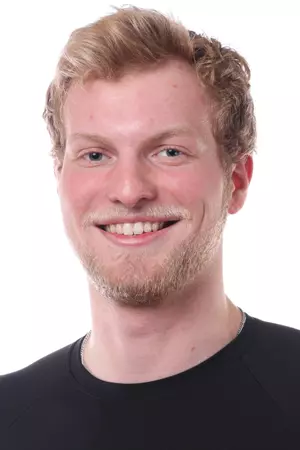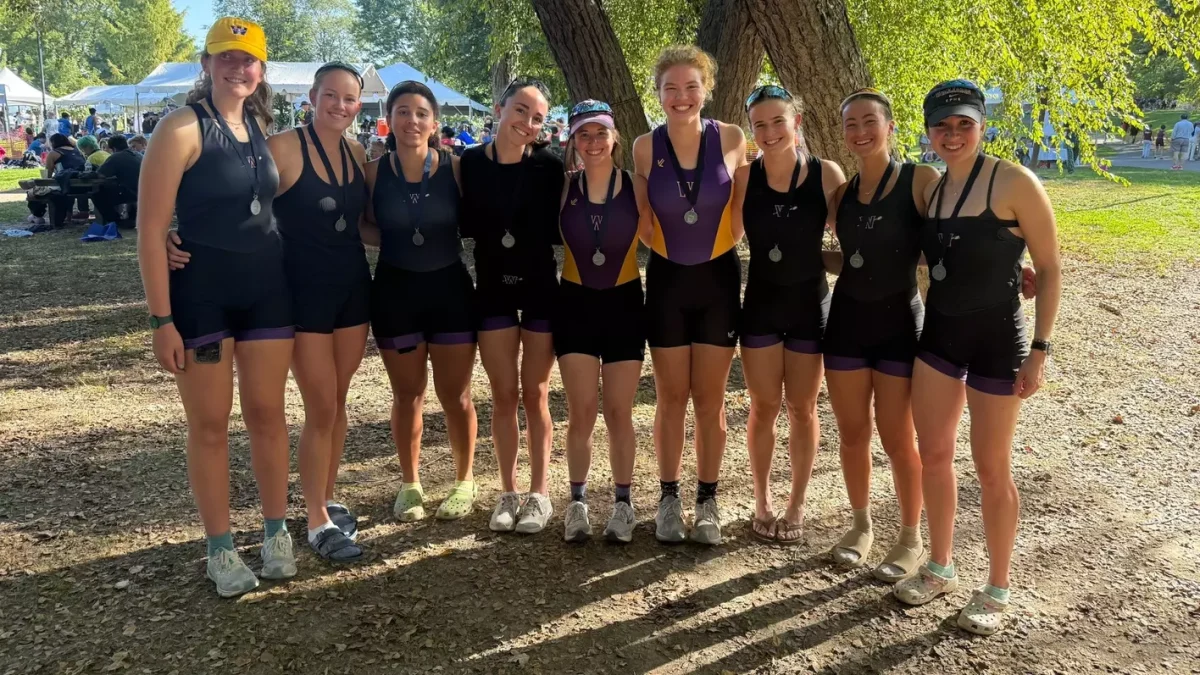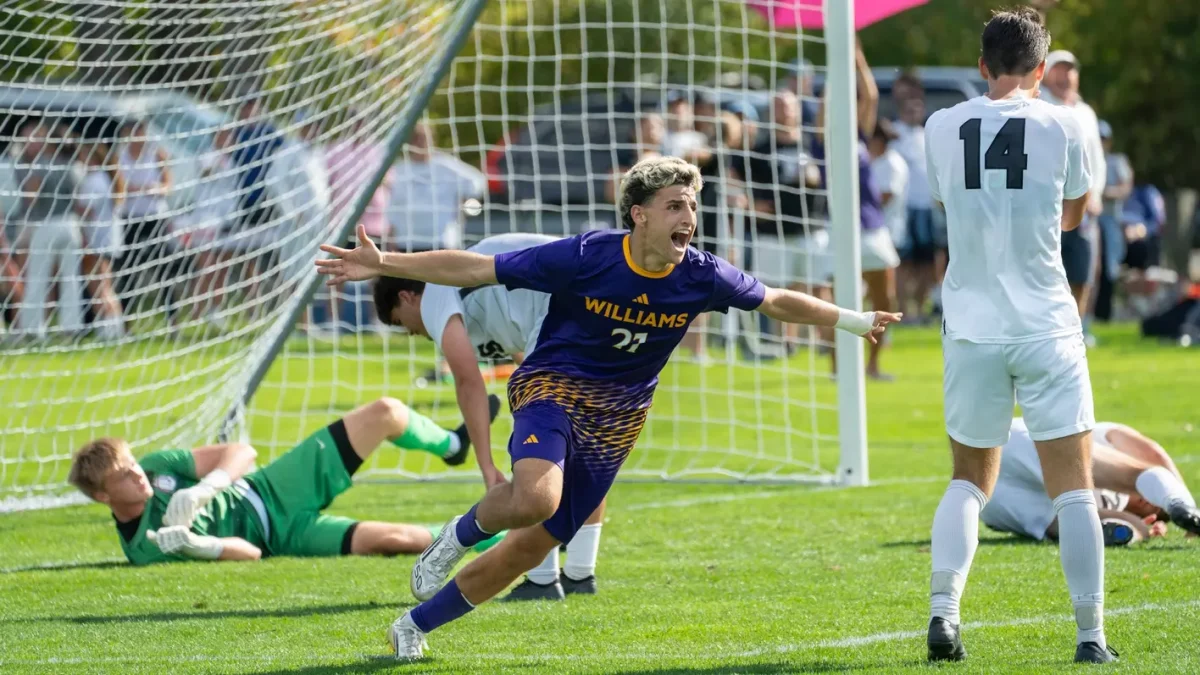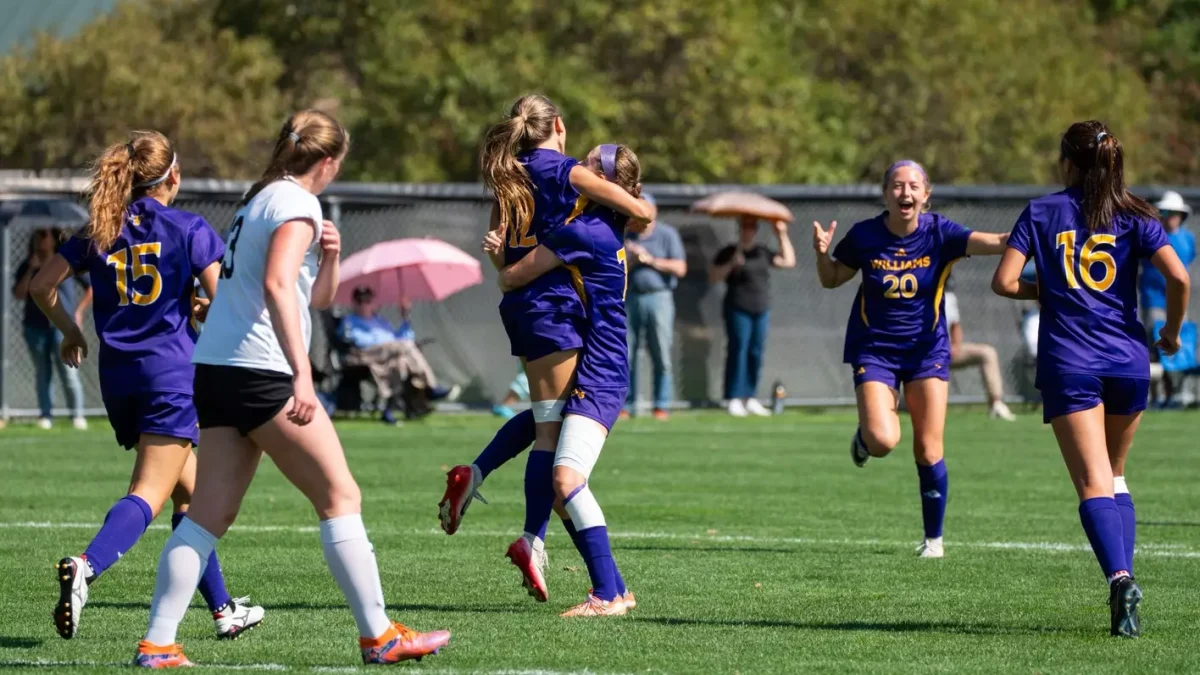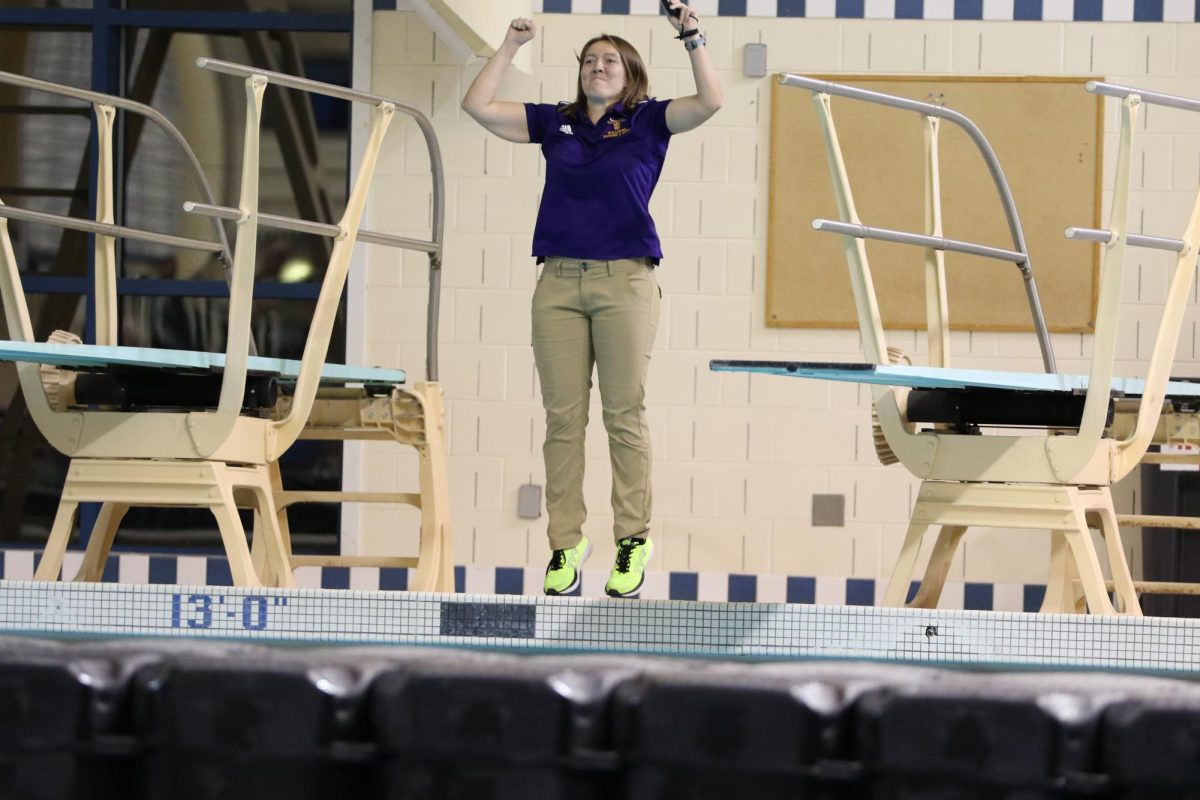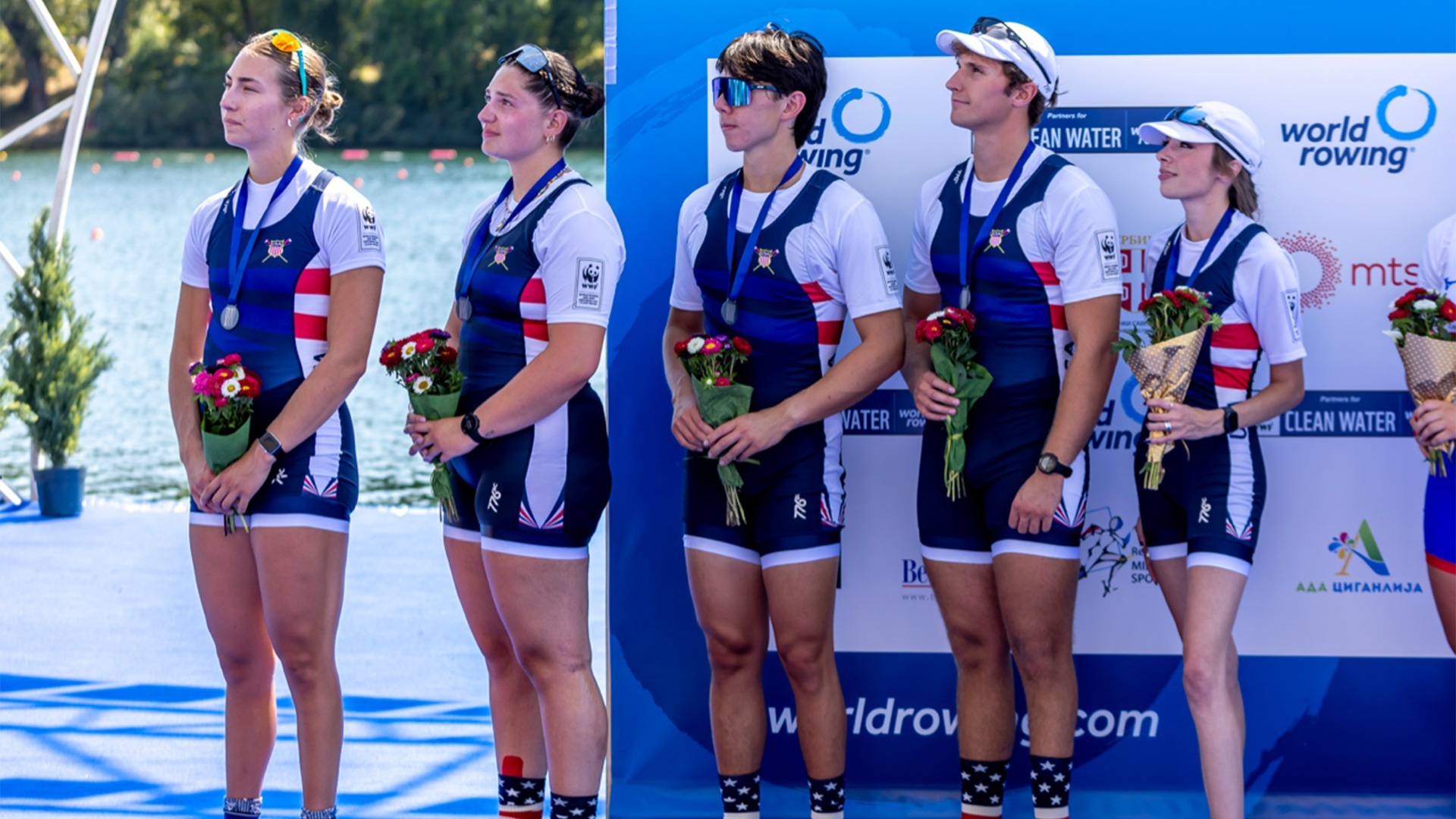
The sun was out in Belgrade, Serbia, and Ben Washburne ’23 was preparing to compete in the A-Final PR3 Mixed Coxed Four race at the 2023 World Rowing Championships, the final event before medals were given out for the category.
“All the nerves go away for me once I’m 20 strokes in,” Washburne said in an interview with the Record.
For the first quarter of the race, five of the six teams — representing countries from around the globe — were neck and neck. But in the last 500 meters of the race, as Washburne heard cries of “USA, USA, USA” from the crowd at the finish line, the American rowers solidified their second-place position and finished only three seconds behind their British competitors.
“Once we got across, it took me a second to process,” Washburne said. He was taking home a silver medal at the world championships for rowing, and in the process, he cemented his boat’s spot in the Paris 2024 Summer Paralympic Games.
When Washburne was approached by Marc Mandel, head coach of men’s crew, about the prospect of joining the USRowing Para National Team during the spring of his junior year, the thought had never previously crossed his mind.
Washburne was born with a clubfoot, a condition that limits range of motion in his left ankle and weakens his left leg. Throughout his time at the College, Washburne held his own with the rest of his teammates, helping the team win two back-to-back national titles at the Intercollegiate Rowing Association Div. III National Championship Regatta in his junior and senior years with the program.
When Mandel learned of a recruitment opportunity for the USRowing Para National Team, which represents the U.S. at the highest level of competition for international rowing, he thought of Washburne, who then reached out to the coaches and began the year-long recruitment process to join.
In the summer before his senior year, Washburne had his first chance to prove himself to the national team’s coaches at the Royal Canadian Henley Regatta, where he rowed alongside members of the national team.
“I hadn’t been training that much because I was doing a finance internship in New York, and that kind of sucks up all your time and more,” he said. “I just drove up for the weekend and hopped in a boat.”
After a strong performance, the national team’s coaches invited him to the Olympic Events Selection Camp, held the following summer on Mercer Lake in West Windsor, N.J., just weeks after graduation. This was when the real competition began.
The team put him up in a hotel near the training facility, and he attended two practices a day: a morning row and an afternoon seat race, where coaches measured individuals against each other to narrow down the group to a team of only five rowers.
“People did a good job balancing on-the-water versus off-the-water relationships, and that was something I really appreciated because sometimes, they can get toxic,” Washburne said.
Three weeks later, the team was finalized, and not long after, Washburne was on a plane to France for the 2023 Para Rowing Regatta to Paris, where he and his teammates took home the top prize.
“That’s where we got a sense that maybe we’d be competitive,” he said, noting that some of their opponents were strong contenders in previous international rowing competitions.
Once home from Europe, Washburne and the rest of the team started their intensive practices in Cambridge, Mass., for the September World Rowing Championships. But Washburne had another beginning, as well: his first job after graduation at Intersect Power, a green energy infrastructure company.
“It was definitely tough,” he said of these days, which consisted of rowing practice on top of remote work for his new position. “There’s only so many hours in a day, and physically taxing efforts can sometimes make it hard to be mentally on top of it.”
Still, the practices were a chance for Washburne to build a community among other disabled rowers. “We’ve all gone through something, and everyone gets that,” he said. “It was a way for us to bond over shared experiences.”
When preparing for the World Championships in Serbia, Washburne said that the team had its eye on qualifying for Paris 2024 — medaling was just an added bonus. But after a second-place finish in their first heat race, Washburne and his teammates had already qualified to compete at the Paralympics, and their attention turned to the top prize.
“We were like, ‘Shoot, that was so anticlimactic,’” Washburne said. “The focus shifted to making a medal happen.”
Fresh off the second-place finish in Serbia, Washburne has some time away from the team before preparation for the Paralympics kicks into gear. And while the team has qualified for the international competition, he still has to secure his spot on the American team at another selection camp in January, though Washburne said the current team members’ strong performances at the World Championships give them an edge against others vying for a spot.
Until then, Wasburne is training on his own in preparation for his chance to prove himself on the national — and then global — stage. “I feel pretty good,” he said. “But anything’s possible.”




